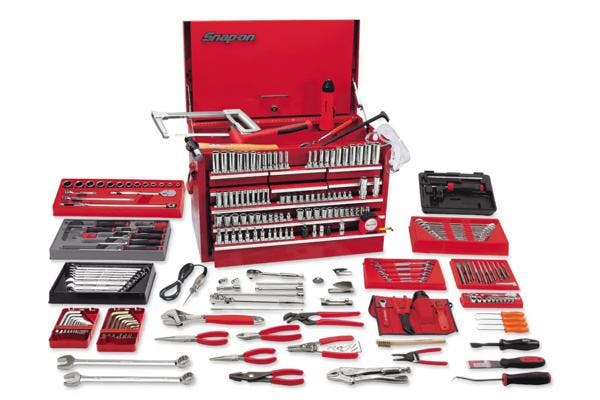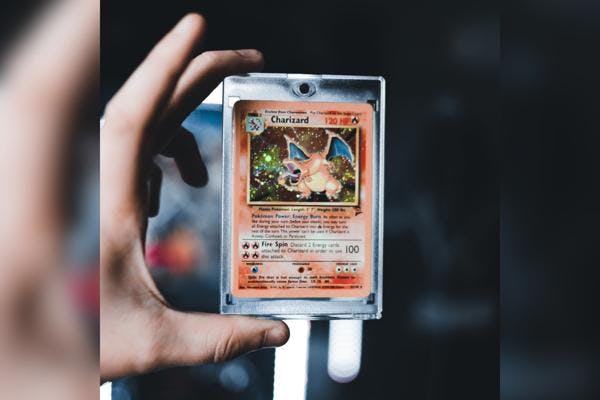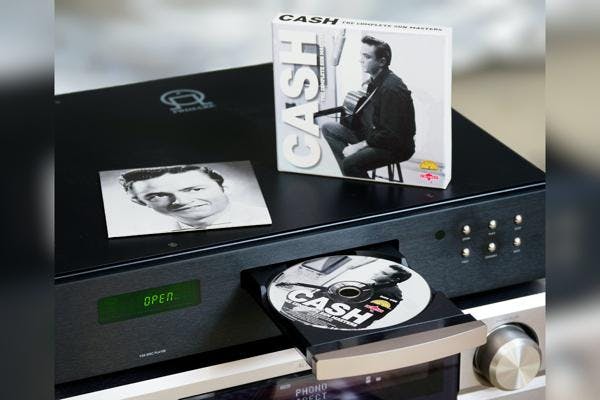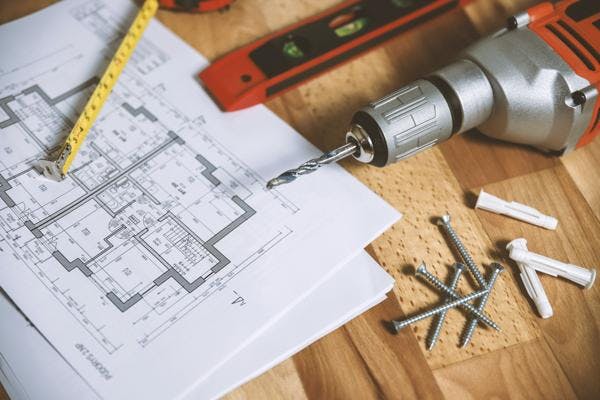
Unleashing the Value: Pawning Snap-on Tools at Pawn Shops
Many pawn shops pay top dollar for good condition tools and equipment.

Negotiating at pawn shops can save you a lot of money when you follow the tips we cover below.
Most pawn shops allow (and expect) buyers and sellers to haggle and settle on a different price.
Item sticker prices can be thought of as the suggested price
, and often the price the pawnbroker is willing to
accept is much lower.
There is no set standard for haggling and bargaining at pawn shops or a given percentage of value that pawn shops will give you. In this post, we cover money-saving tips when you negotiate at pawn shops as both a buyer and seller.
Haggling occurs when a buyer and seller negotiate until a common agreement on the price and terms is reached. The two parties go back and forth making offers and counteroffers until an agreement is reached. Haggling is not limited to the price of an item or service - haggling can often include additional terms or requests. For example, a buyer may negotiate the purchase of a furniture piece for $300 if the seller agrees to repair the damage. The repair is an extra term set during negotiation.
The art of haggling goes back thousands of years and it is common in many countries around the world. The popularity of MSRP and sticker prices is a relatively recent trend compared to the longer-term economic history of the world. Pawn shop history dates back thousands of years and follows historical negotiating practices.
Knowledge and information are power. Search other local pawnshops as well as online marketplaces like eBay,
Craigslist, and Nextdoor.
Find comparable items (also known as comps
) and note the list prices. Keep in mind that often these are asking prices
(not sales prices
), so the
sales price might be lower.
Make a list of items and their prices. Determine if prices are grouped in a tight range, or if the prices are more variable. If prices are variable try to understand what factors and traits cause the price variations (for example, make, model, color, condition, etc).
Pawn shops are in the business to make money. Pawn shops act like a middleman and make money on a spread
between the cost of an item and the sales price of an item.
Pawnbrokers try to factor in the spread cost when making offers to buy and sell items. Pawn brokers need to make lowball offers to factor in a profit spread and room for negotiation.
As a buyer: Pawn shops may list prices higher than prices found on other marketplaces. The higher price gives the pawnbroker room to adjust the price during negotiations.
As a seller: Pawnbrokers typically offer about half of an item’s worth. For example, a baseball card with a suggested value of $100 may fetch $50 at a pawn shop. Pawnbrokers often make adjustments to their offers based on other factors like how easy the item is to sell and the costs to sell the item (if it needs to be fixed or repaired).
Use Pawn Shop Map to find local pawn shops near you. Visit pawn shops that sell similar items - pawn shops often focus on specific categories.
Read reviews and see what other consumers have to say. Some people may discuss their experience dealing with the pawn shop.
As a seller: Selling your item to a pawn shop that carries similar items can help you fetch a higher price. For example, a pawn shop that sells lawnmowers will likely be able to offer you a higher price for a lawnmower than a pawn shop that does not sell lawnmowers.
Pawn shops expect you to negotiate. As a result, your starting price should always be different than the price you are trying to achieve. Keep in mind that there is no hard rule for negotiating at pawn shops - the negotiation process is a dance between the buyer and seller. Each step subsequent step depends on the prior step by the other party.
As a buyer: Offer half of what you want to pay. For example, let’s say you want to pay $50 for a baseball card. You can start by offering $25, and then you can adjust your offer gradually up to $50 if needed.
As a seller: Offer twice what you want to get. For example, let’s say you wanted to sell a baseball card for $50.You can start by offering $100, and then you can adjust your offer gradually down to $50 if needed.
Pawnbrokers keep a large inventory of items and it is impossible to remember all facts and figures. You can act like a salesperson by mentioning reasons why they should listen to you.
As a buyer: When you offer a lower price, explain why you chose that price. For example, tell the pawnbroker that you are offering $25 for a chair listed at $75 because the fabric looks dated and you will need to spend money to change the fabric. For another example, tell the pawnbroker that you are offering the lower amount because you saw a similar item listed at another pawn shop for that amount.
As a seller: When you ask for a higher price, explain why it deserves the higher price. Tell the pawnbroker reasons why the future buyer of the item would pay more. Reasons could include scarcity, condition, comps, etc. For example, when you are asking to get $5,000 for a Rolex watch when the pawnbroker has offered $4,500, you can say that it has a perfect service record and it does not have any visible damage.
Negotiating can be stressful for some people. Also, sometimes feelings can be hurt. You must always maintain respect for the pawnbroker during your discussions. Feel free to turn down any lowball offers or walk away politely.
We recommend this guide for using respectful negotiations.
As a seller: Often feelings can get hurt when a pawnbroker does not place a monetary value on items that have sentimental value. For example, the value of a family heirloom is higher to the current owner than a buyer who does not have the same history with the item. Keep in mind that pawnbrokers cannot offer more for items that have sentimental value.
Not all offers will make sense for both parties. Sometimes it is impossible to find an agreement when haggling with pawn shops. Know when you should walk away or find a different pawn shop.
As a buyer: Determine the maximum amount you are willing to pay for the item. Turn down any offers above that amount.
As a seller: Determine the minimum amount for which you are willing to sell the item. Turn down any offers below that amount.
Some people get nervous during haggling. This is perfectly normal. Keep in mind that pawnbrokers negotiate daily and are very good at haggling.
Find friends or family to practice negotiating. Get feedback on how you can improve your approach. You can also practice in front of a mirror in private.
Often the other side will give verbal and non-verbal cues during negotiations. Pay attention to these signs and adjust your strategy in real-time.
We recommend reading Never Split The Difference, a book written by a former international hostage negotiator for the FBI. The book offers a new, field-tested approach to high-stakes negotiations.
Many other factors can be negotiated other than the price at pawn shops. Below is a list of items to consider using when you haggle:
Write down notes during your research and try to answer the following questions:
Shammy P
February 2023
It sure was helpful when you said that you must consider reading the reviews of a pawn shop to find out what the customers have to say about them. My sister is planning to pawn some of her jewelry pieces to support her financial needs after losing a job last month. It is important for her to find a reputable pawn shop for her peace of mind, so your tips are helpful.
Elina Brooks
March 2023
Thank you for letting us know that we are more likely to get a higher price for our items if the pawn shop we're considering carries similar items as well. I plan to pawn some of the jewelry my grandmother gave me since I need to pay medical bills soon. I'll be sure to keep this in mind while I search for local pawn shops to consider.
Clare Martin
November 2023
We need quick money because of my aunt's sudden hospitalization because of a heart complication, so we need the amount to pay for her medical bills. I am thankful you informed us that most pawn shops allow negotiating and settling on a different price since there is no set standard for bargaining or a given percentage value. I'll be sure to remember this while I look for a pawnbroker in San Bernardino who can give me a good price in exchange for my jewelry.

Many pawn shops pay top dollar for good condition tools and equipment.

Learn how to sell your good condition designer sunglasses to pawn shops

Learn how you can exchange Christmas gifts at pawn shops for cash

Learn how to get the most money at pawn shops for your rare Pokémon Cards.

Many pawn shops still buy and sell DVDs and DVD players. Learn how much money pawn shops will offer.

Pawn shops are an essential part of the economy. Learn how you can start a profitable pawn shop in your local region.